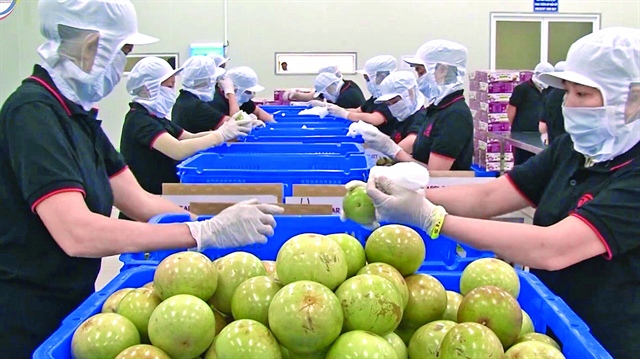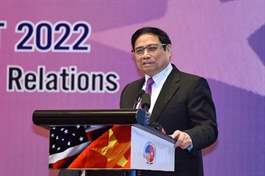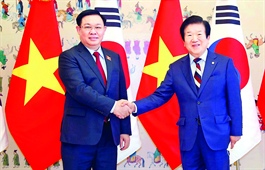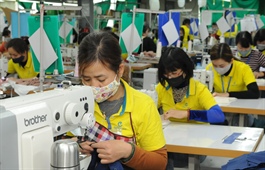An important factor in attracting FDI
An important factor in attracting FDI
Although Vietnam is considered an attractive investment destination, in order to attract sustainable foreign direct investment (FDI) flows, the country needs to focus on developing a green economy, with reduction of greenhouse gas emissions.
FDI growth
In 2021, despite complicated developments of the Covid-19 pandemic that seriously affected the world and domestic economic growth, Vietnam nonetheless attracted US$31.15 billion in foreign investment, up 9.2 percent compared to the year before. The investments include newly registered capital and additions to registered projects by the world’s leading corporations such as LG Group (Republic of Korea) in Hai Phong with a capital increase of US$2.15 billion; LEGO Group (Denmark) invested in a US$1 billion factory in Binh Duong Province; and the O Mon II Thermal Power Plant (Japan) has a total registered capital of over US$1.31 billion.
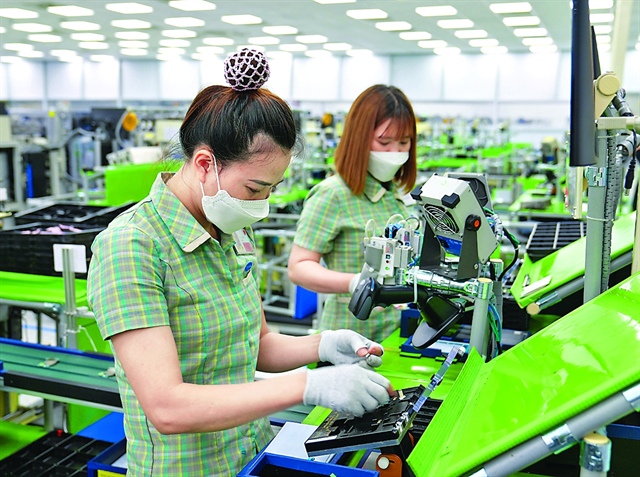
Vietnam’s FDI attraction on positive course |
The inflow of foreign investment exceeded US$2.1 billion in January 2022, up 4.2 percent year-on-year. Notably, the additional capital of adjusted projects reached US$1.27 billion, up 2.69 times over the same period last year. Dr. Nguyen Dinh Cung, former Director of the Central Institute for Economic Management (Ministry of Planning and Investment), explained that following two years of restricted movement and investment due Covid-19, FDI inflows began to return to Vietnam by late 2021, with large newly-licensed projects. This uptick signals positive forecasts for 2022.
A survey conducted by the Japan External Trade Organization (JETRO) found that 56.2 percent of Japanese enterprises in Vietnam expect their 2022 profits will improve compared to the previous year and 55.3 percent of Japanese enterprises in Vietnam plans to expand production and business in the next two years. The survey also found that the ratio of profitable enterprises operating in Vietnam in 2021 was 54.3 percent, higher than about 50 percent in 2020. In light of these findings, Takeo Nakajima, Chief Representative of JETRO Hanoi, said Vietnam would still attract many Japanese businesses in the coming period.
Vietnam has also become more attractive to investors due to the National Assembly’s approval of a stimulus package worth US$15.4 billion to aid economic recovery and generate solid investor confidence.
|
Digital transformation, green technology
According to World Bank Country Director for Vietnam Carolyn Turk, in order to boost economic growth and attract sustainable and effective FDI inflows, Vietnam should focus on investment in digital transformation and application of green technology in production and business activities.
She said the shift to green development will open up many opportunities for Vietnam, especially in light of Prime Minister Pham Minh Chinh’s ambitious announcement of Vietnam’s net-zero emissions target by 2050 at the recent climate summit in Glasgow. This commitment to solve global problems is also expected to improve Vietnam’s growth and investment attraction because its major export markets are increasingly concerned about carbon emissions at the country’s factories.
In particular, according to economists, the consumption trends of developed economies in the world have changed. They are not only interested in product designs and quality but also in greenhouse gas emissions in producing countries. Accordingly, garment products, electrical equipment, and food products manufactured in environmentally friendly processes will draw more attention, making a green economy an important factor in Vietnam’s investment competitiveness.
| The Prime Minister has issued Decision No. 1658/QD-TTg approving the National Strategy on Green Growth for the 2021-2030 period, with a vision to 2050. The overall target is restructuring the economy in conjunction with renewing the growth model, environmental sustainability and social equality. |


